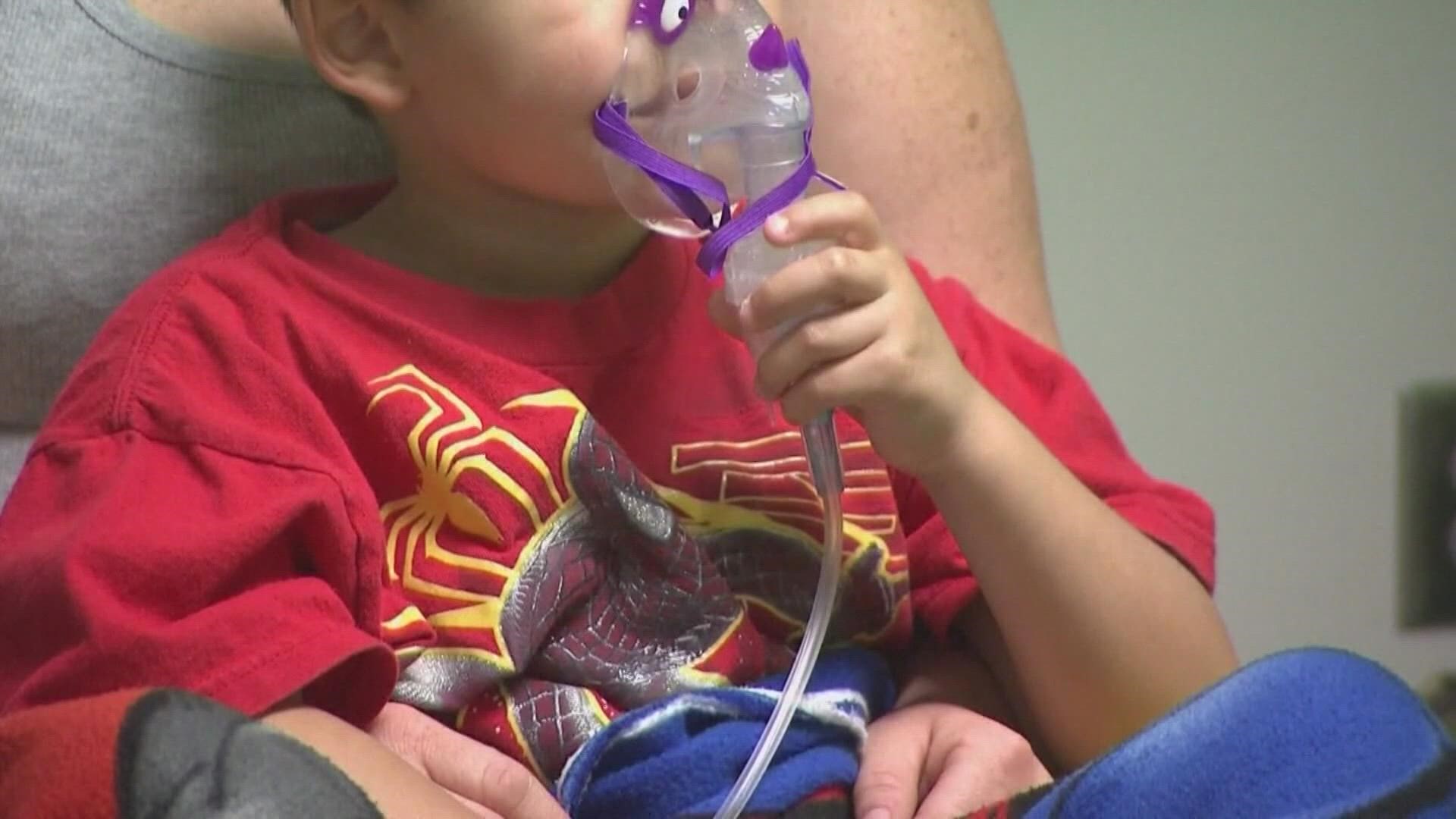PHOENIX — A nationwide triple threat has Valley pediatricians on high alert. They're monitoring a growing trend of hospitals filling up across the U.S., with sick children battling a mix of RSV, COVID-19 and the flu.
Dr. Wassim Ballan, Physician Chief of Pediatric Infectious Diseases at Phoenix Children's, said RSV cases are rising earlier than expected in Arizona. This is happening for a second year in a row. While pediatric hospital beds are not full at Phoenix Children's now, there is growing concern among doctors. That's because they're closely tracking a surge in respiratory illness cases and full hospital beds in other states across the country.
Dr. Ballan said Arizona is on trend to follow another atypical year with earlier and higher numbers of RSV cases. They're also starting to see an increase in COVID-19 infections.
And flu season is expected to be worse this year, following a bad season in the Southern Hemisphere. Combining all three of the big viruses, coupled with additional respiratory illnesses not listed, there is growing concern of a 'Tripledemic' hitting Arizona too.
“This is what we’re predicting," Dr. Ballan said. "It’s hard to be 100% sure what will happen. Definitely, all of the signs that we're seeing so far point to the fact that might be the case. We have to be sure that everybody is aware of this possibility.”
Nationwide, nearly 75 percent of pediatric hospital beds are full, months before the anticipated winter peak. That's not the case in Arizona now, and there is still plenty of room at Phoenix Children's Hospital. But, doctors are watching the national trend closely.
RSV is a respiratory illness that can cause symptoms in children similar to the flu. With this virus, doctors worry about patients younger than six-months old, those born prematurely, or patients who have something like a heart or lung condition. The underlying conditions can make young patients more vulnerable to worse infection, that can lead to hospitalization.
RSV is not as big of a risk for adults. It usually causes cold-like symptoms. However, adults can spread RSV to children who are at higher risk for serious infection. While RSV spreads, Valley doctors are also concerned about an increase in COVID-19 cases and a potentially bad flu season, which could cause more co-infections in children.
“A combination of two different viruses at the same time, and we know clinically those patients have a worse course during their infection because of that co-infection when they have two viruses at the same time," Dr. Ballan said.
Dr. Ballan added Phoenix Children's Hospital has plenty of bed-space for children, unlike other states who are dealing with a severe rise in respiratory viruses. While the hospital has room, they're also watching the situation very closely to make sure they don't fill up.
Dr. Ballan said the season for respiratory illnesses is something they always prepare for. There are measures they can take to free up space for more patients. But again, they're not at this point yet here. The concern right now is over and earlier than normal rise in RSV cases in Arizona children, plus doctors said COVID-19 cases are increasing too.
"Any time we start hearing about RSV spikes or any respiratory virus spikes on the East Coast, especially in the Northeast, we start anticipating we might go through the same in Arizona," Dr. Ballan said. "So we can predict that yes we might go through surge where we would see the same thing Connecticut is seeing. But we can’t be sure about this. We're watching this very closely and we’re prepared for it."
It can be tricky for parents to know which respiratory virus their child has. Many symptoms overlap from congestion, to coughing, sneezing and a sore throat. There are also additional respiratory viruses besides COVID-19, RSV and the flu.
Doctors are urging parents to take precautions now. Vaccinations against the flu and COVID-19 keeps the risk of severe infection in children down. While there's no vaccine for RSV, however, pediatricians say protecting them against two of the three can help children from becoming very sick. Parents can take their children in for testing or a check-up if symptoms become more severe.
12News on YouTube
Catch up on the latest news and stories on the 12News YouTube channel. Subscribe today.

